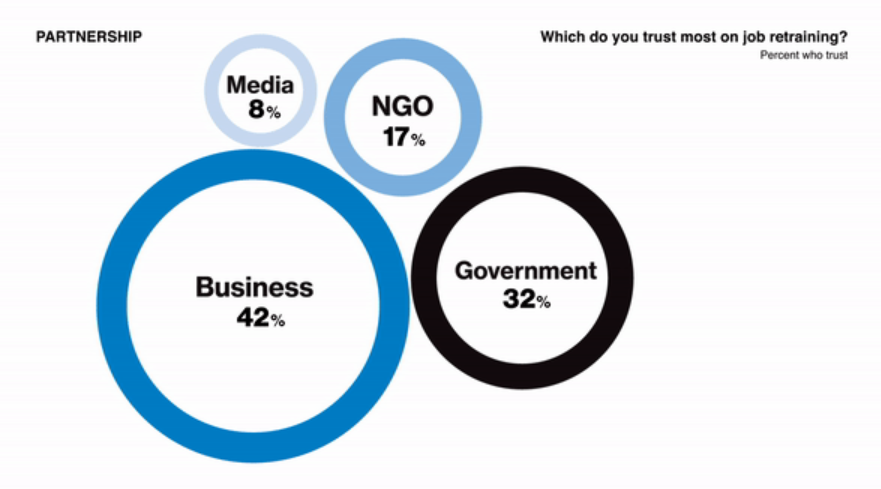The world of work is changing fast and companies are having to adjust to this new reality. According to a recent report, 92% of employees said they expect their company’s CEO to speak up on issues ranging from income inequality to diversity and training for jobs of the future.

Cultural fit
Younger generations in particular expect companies to address the implicit question: why would I want to work for you? They want employers who match their worldview and value systems. It is part of a wider quest to find businesses that fit in with their lifestyle, which tends to favour independence and flexibility.
But it’s not just the young. As the Sydney Morning Herald notes, more retirees are discovering the benefits of the gig economy as a way to continue to earn money and work flexibly.
However, each coin has two sides and the 2020 Edelman Trust Barometer notes a backdrop of growing disenchantment with the current social contract, especially in the developed world.
The report author and CEO Richard Edelman explains that businesses, previously paying only lip service to this kind of societal discontent, have stepped up their efforts to provide a sense of purpose and better connect with their employees.
Keeping it positive
The mood is more positive in the developing world. Kenya is deemed the most optimistic country of all – with 9 in 10 people thinking they will have more money in five years than they do now. In Indonesia the figure is 80%, with India close behind at 77% and China at 69%. This contrasts sharply with the US, where the figures stand at 43%, and the UK, where barely 1 in 4 people think they will be better off in future (27%).
The report also looks at sources of worker insecurity. Across the board, employees are concerned by the shifting nature of the workplace, with 61% fearing the loss of permanent jobs as the gig economy takes shape. A lack of training (58%) and competition from cheaper foreign competitors (55%) are also cited as worries.

Other significant areas of concern were the threat of a looming recession (60%) and the fallout generated by automation (53%).
Companies are picking up on these fears and addressing them by embarking on programmes to reskill and upskill workers as part of a drive towards lifelong learning for their workforce. Indeed, it does seem that those with the right skills feel more confident about the future, as well as being less inclined to fear advances in technology like AI and robotics.
Businesses play a key role when it comes to reskilling. According to the Barometer, they are the most trusted on job retraining (42%), followed by the governments (32%), NGOs (17%) and media (8%).

Edelman’s Trust Barometer surveyed 34,000 people across 28 countries in October and November 2019
